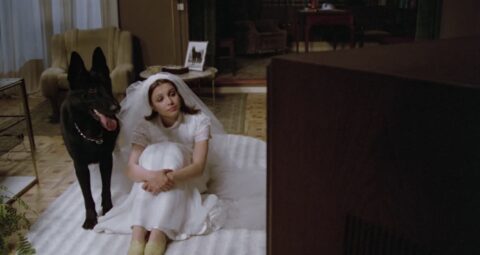Spoilers follow…
After the death of Spanish dictator Francisco Franco, the road to democracy in Spain was a bumpy one — it unfolded like the aftermath of a long and torrid romantic affair.
Franco led Spain through various stages of a military dictatorship for nearly 40 years, from 1936 up until his death in 1975, his leadership involving several elements of fascism, totalitarianism and general conservativism. After his demise, a neo-fascist movement, made up of Franco’s supporters, sprang up in opposition to Spain’s impending democratic government. They had a judge, jury and executioner-like hold in the country, resorting to murder and violence in defence of Franco’s legacy.
Trade unions — which were still considered illegal at the time — were formed by workers, with the new phase of the Spanish government in view. This quickly became the biggest signifier of the end of the dictatorial rule, and as such, these unions became the main target for the neo-fascist movement, with many of the workers killed by Franco’s supporters in an attempt to continue the dictatorship at all costs.
During this time, Spanish filmmaker Eloy de la Iglesia became a notable artistic figure of what would be known as the Spanish transition. His films of this era, the late 70s, have garnered something of a cult-like status for their portrayal of various aspects of Francoist Spain. One such movie is La criatura (1977). This movie, with time, has developed a time capsule quality — similar to a documentary — as it presents some real-life events that happened that year during the transition, such as the death of trade union members.
Set against the backdrop of the political unrest, Eloy de la Iglesia’s 1977 movie La criatura follows Cristina (Ana Belén), a Madrid housewife in a tepid relationship with her husband Marcos (Juan Diego), a successful TV presenter with political ambitions and neo-fascist ties. The desire to add another member to their family has become the focal point of their relationship, dominating every aspect of their marriage. Grieving the loss of her pregnancy — coming after several attempts to conceive — she adopts a stray dog, a black, male German Shepard, as a pet, a singular act that leads to the eventual decline of their relationship.
The bond she develops with the animal begins to put a strain on her marriage. This relationship with her pet seems maternal at first; she takes extra care of him, feeds him, grooms him and gives him the name Bruno, the name meant for her unborn child, much to the chagrin of her husband Marcos. With time, however, their dynamic starts to take a peculiar turn — she gives up spending time with Marcos in order to spend more time with Bruno, shows signs of jealousy when he adopts a female German Shepard as a playmate for Bruno, and even shares a bed with him when Marcos isn’t around.
These events lead Marcos to turn away from his relationship with Cristina and into the arms of his co-worker Vicky (Claudia Gravi), with whom he has a brief affair, plunging him deeper into his political career. To cushion his worries and concern for his wife, he begins to attend more dinner parties with right-wing government officials and more neo-fascist rallies, a development that Cristina frowns upon, as she privately espouses progressive rhetoric and criticises her husband’s political ideology.
The pivotal moment in the movie comes in a scene where Marcos gives an impassioned speech at a rally comparing a democratic Spain to a wailing dog that does not bite, needing a strong hand, such as a military dictatorship, to put it in its place. During the course of this speech, the scene cuts to Cristina in the audience several times, staring at her husband with a face devoid of expression. With the gradual increase in intensity — brought about by a lack of score during the passionate speech — De la Iglesia frames this sequence as a moment of decision-making for the characters, integral to the story. He places a question in the mind of the viewer: Does Cristina stay in a rigid marriage with her husband? Or does she choose the company of her pet? Does Marcos try to make his marriage work? Or does he focus more on his political aspirations?
This is reminiscent of the uncertainty of the time period the movie belongs to. A time where some Spaniards left the dictatorial rule behind and fully embraced democracy, while others struggled to do so, and the resulting push and pull this created. With its zoophilic storyline — however benign — he symbolises the many ways the Spanish people tried to cope with or find solace in the unpleasant reality of living under a military dictatorship, as well as how they were able to move on once a better reality was within their reach.
The relationship Cristina has with her husband is the status quo, values linked to dictatorial ideology, and which she expresses as restricting. On the other hand, the bond she shares with her dog is seen as unusual, frowned upon, but liberating in its own unique way. With Bruno, she chooses liberation, the freedom in the unusual.

Chidinma Okezie
Chidinma Okezie is a movie lover and aspiring actress from Abia State, Nigeria.
